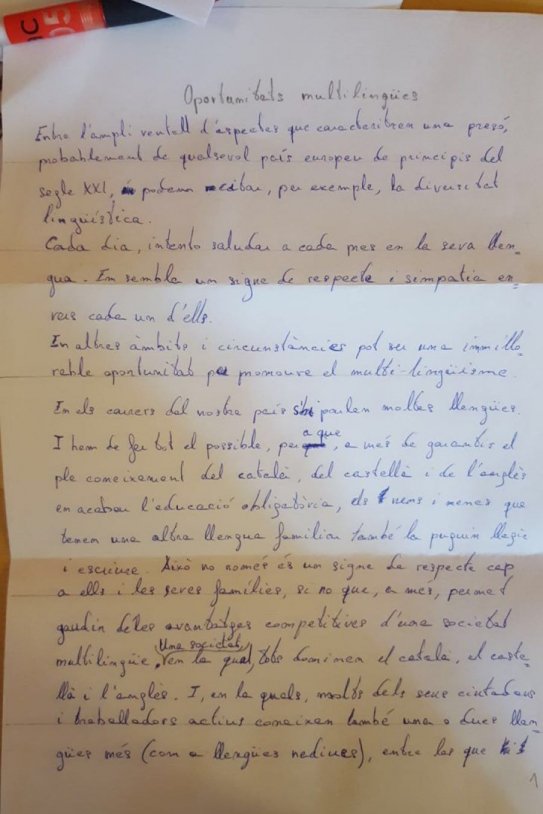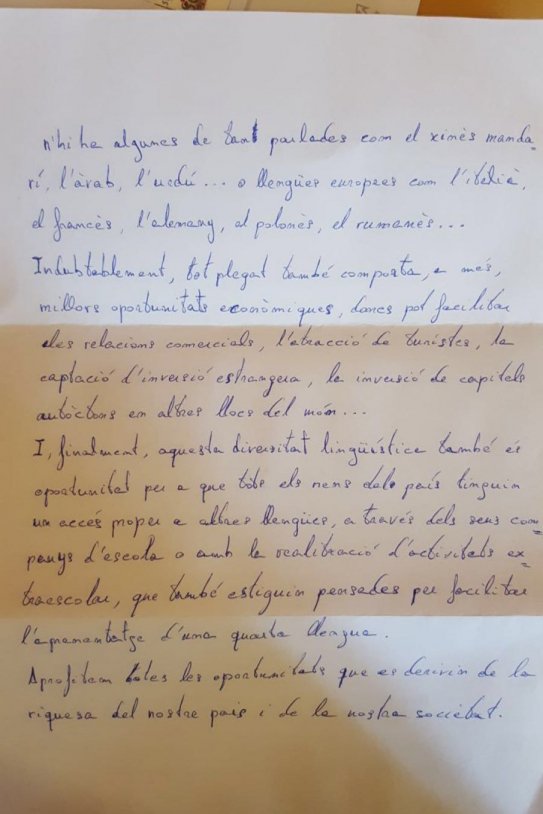Among the wide range of factors which characterise a prison, probably true of any in any European country at the start of the 21st century, we can cite, as an example, linguistic diversity.
Each day, I try to greet each prisoner in their own language. It seems to me it's a sign of respect and friendliness towards each of them.
In other areas and circumstances it can be an unbeatable opportunity to promote multilingualism.
In the streets of our country, many languages are spoken.
And we have to do everything possible so that, as well as guaranteeing full knowledge of Catalan, Spanish and English by the end of compulsory education, children who have another family language can also read and write that one. This isn't just a sign of respect towards them and their families, but also, moreover, allows us to enjoy the competitive advantages of a multilingual society. A society in which we can all speak Catalan, Spanish and English. And in which many citizens or active workers also know one or two other languages (as native speakers), among which are some as spoken as Mandarin Chinese, Arabic, Urdu and European languages like Italian, French, German, Polish, Romanian, etc.
Each day, I try to greet each prisoner in their own language. It seems to me it's a sign of respect and friendliness towards each of them.
Doubtlessly, all in all, it also brings better economic opportunities, it can enable commercial relationships, attract tourists, capture foreign investment, encourage local money to be invested around the world, etc.
And, finally, this linguistic diversity is also an opportunity for all this country's children to have close access to other languages through their classmates or extracurricular activities, which are also designed to ease the learning of a fourth language.
Let's take advantage of all the opportunities which come from the richness of our country and our society.


Original text as sent by vice-president Oriol Junqueras from Estremera prison
